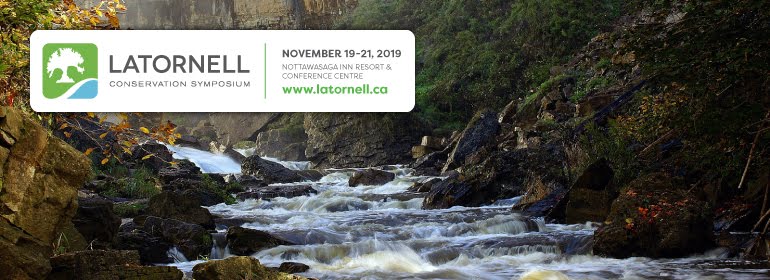By Barbara MacKenzie-Wynia, Regional Nature Network Coordinator, Ontario Nature
"To me, mentorship is about guiding. This isn’t the same as teaching because, in my mind, a good mentor doesn’t give you a step-by-step guide to success. Instead, they provide valuable insight that can only be gained through experience, and this insight can in turn be taken and applied in a way that makes sense to the person being mentored. The results of this transfer and application can then be fed back to the mentor in a reciprocal, iterative process. With this in mind I believe that mentoring is particularly important to me in my current situation: as someone who is working toward completing a PhD I feel that I am in a position to both offer and accept career and life lessons. We are never too young (or old) to help guide others down the paths we have already walked."- William Trenouth, PhD Student, University of Guelph
"To me, mentorship is about guiding. This isn’t the same as teaching because, in my mind, a good mentor doesn’t give you a step-by-step guide to success. Instead, they provide valuable insight that can only be gained through experience, and this insight can in turn be taken and applied in a way that makes sense to the person being mentored. The results of this transfer and application can then be fed back to the mentor in a reciprocal, iterative process. With this in mind I believe that mentoring is particularly important to me in my current situation: as someone who is working toward completing a PhD I feel that I am in a position to both offer and accept career and life lessons. We are never too young (or old) to help guide others down the paths we have already walked."- William Trenouth, PhD Student, University of Guelph
I have always thought that the Latornell
Symposium would be a perfect venue to provide formal mentoring opportunities for
Conservation professionals. It just makes good sense. Art
Latornell believed in sharing ideas and experiences with young people, and wanted
to ensure that younger generations learned about natural resources and the
environment. Despite Art's numerous
professional achievements, many would argue that Art had his greatest impact
through his influence and teaching of students and colleagues. Fittingly, even the A.D. Latornell Conservation
Symposium logo was designed to represent the significant aspects of Art
Latornell's life and legacy. Looking closely, the logo is a silhouette of an
ancient tree, which represents the conservation of natural resources, and Art's
long-standing interest in the natural world. When viewed in the negative
however, the white areas formed by the trunk contain the profiles of two people,
a young student and an older man, with their heads lowered as if studying
something on the ground. This view of the logo represents Art's belief in the
importance of mentoring and teaching which he practiced in his lifetime and
which continues through his bequest in the Latornell Symposium Programs.
And now, after 20 years of successful Latornell Sympoisum’s, a comprehensive mentorship program is being launched. The new mentorship program is meant to foster opportunities for career growth at the beginning of your career, mid-way through, or for any continuous learner that enjoys connecting with new people of all ages with common interests. Throughout the Symposium there will be a collection of events and activities planned to purposefully connect you with new people of all ages with similar interests, to share stories, experiences and to learn from one another. I think there is no better time for this program to be launched than at the Symposium’s 20th anniversary celebration! It is my hope that the mentoring program will foster inspiration and collaboration in our community and continue to build relationships far beyond the week of the actual Symposium.
If you want to learn more about the Latornell Mentoring program (and I hope you do), check out this link for more information: latornell.ca/mentorship.html
And now, after 20 years of successful Latornell Sympoisum’s, a comprehensive mentorship program is being launched. The new mentorship program is meant to foster opportunities for career growth at the beginning of your career, mid-way through, or for any continuous learner that enjoys connecting with new people of all ages with common interests. Throughout the Symposium there will be a collection of events and activities planned to purposefully connect you with new people of all ages with similar interests, to share stories, experiences and to learn from one another. I think there is no better time for this program to be launched than at the Symposium’s 20th anniversary celebration! It is my hope that the mentoring program will foster inspiration and collaboration in our community and continue to build relationships far beyond the week of the actual Symposium.
If you want to learn more about the Latornell Mentoring program (and I hope you do), check out this link for more information: latornell.ca/mentorship.html
Barbara MacKenzie- Wynia is the Regional Nature
Network Coordinator for Ontario Nature. She is also a long standing member of
the A.D. Latornell Conservation Symposium Steering Committee and a member of
the newly established Latornell Mentoring Committee. Look for her at the
Symposium- she’s ready to chat!



